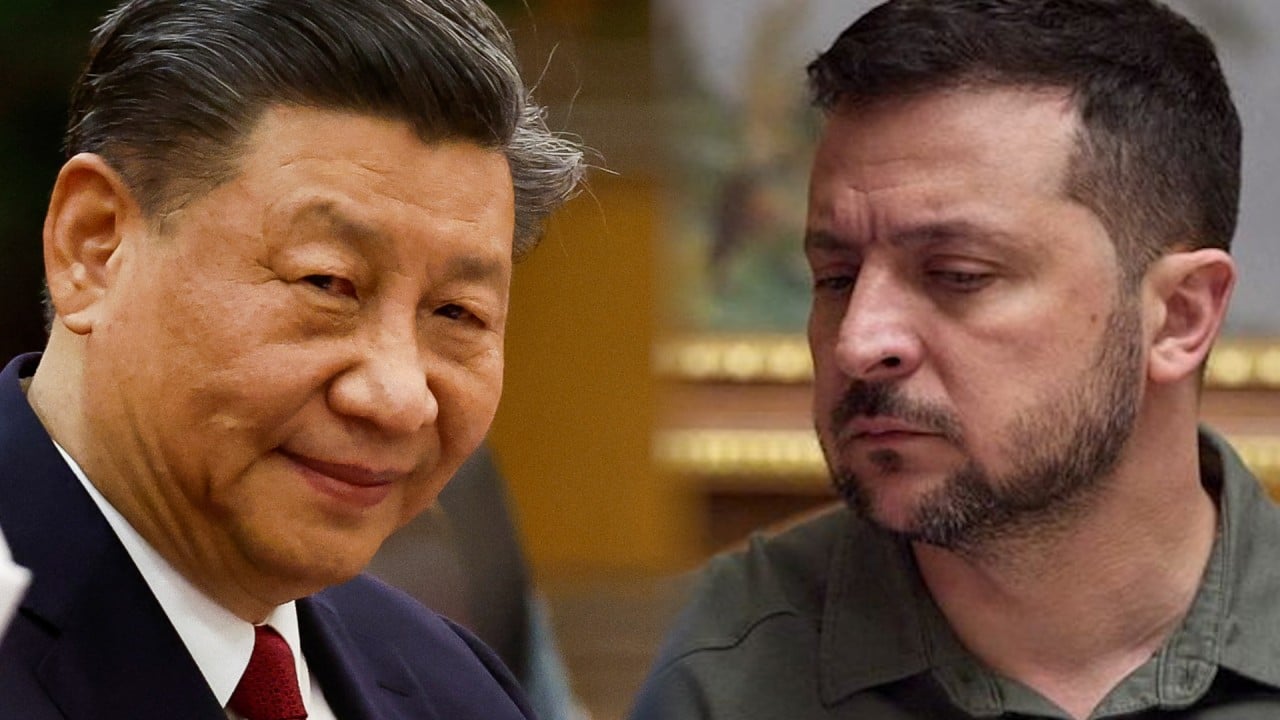
China reaches out to Central Asia in push to end Ukraine war
- Russia’s invasion ranks high on agenda during meeting between Chinese foreign minister and counterparts from five Central Asian countries
- The gathering comes a day after long-awaited phone call between Xi Jinping and Volodymyr Zelensky
Qin said the foreign ministers of Kazakhstan, Kyrgyzstan, Tajikistan, Uzbekistan and Turkmenistan – all former Soviet states – spoke highly of the constructive conversation between Xi and Zelensky and believed it would be helpful for achieving a ceasefire and peace talks soon, according to the Chinese Ministry of Foreign Affairs.
He added that China was willing to continue to work together with all parties, including Central Asia, to build consensus and promote a resolution to the crisis.
The countries have been wary of endorsing Russia’s aggression and have either voted to abstain or simply did not vote in the United Nations General Assembly resolutions condemning the invasion.
The ministry said Qin and his counterparts were concerned about the current situation and geopolitical conflicts, and stressed that bridges should be built rather than walls – a metaphor for increasing dialogue rather than isolation.
The first call between Xi and Zelensky took place on Wednesday – 14 months after the Russian invasion began.
The US and other Western countries have criticised Beijing for its refusal to condemn the invasion and its close economic ties with Moscow.
During their visit earlier this month, French President Emmanuel Macron and European Commission President Ursula von der Leyen reiterated calls for China to help end the war.
Hours after the Xi-Zelensky call, US National Security Council spokesman John Kirby called the move “a good thing”.
Eric Mamer, spokesman for von der Leyen, said the call was “an important, long overdue first step by China in exercising its responsibilities as a member of the UN Security Council”.
In the meeting on Thursday, Qin pledged to deepen cooperation with Central Asia and make it “the pure land of win-win cooperation” instead of “a war zone of geopolitical contest”.
The five Central Asian nations showed support for China’s mediation efforts in the war as part of a multilateral push for a more “reasonable” international order, according to the foreign ministry.
Last month, US Secretary of State Antony Blinken visited Kazakhstan and Uzbekistan. While there, Blinken said the US would focus on helping the countries achieve a balance in their ties with each other and the outside world.
He also announced new funding to support economic growth for the region as they experienced “spillover” from the war, Reuters reported.
The foreign ministers expressed support for China’s “global advocacy and vision” and the “legitimate stance on the questions of Taiwan, Xinjiang, and Tibet” as well as opposition to the “politicisation of human rights”, the Chinese foreign ministry said on Wednesday.
Qin said China and the Central Asian countries shared the “same or similar stances” on major global and regional issues and would together safeguard the international order.
Qin said Beijing opposed interference in internal affairs by foreign forces and would “never allow anybody or forces to create chaos and unrest in Central Asia”, according to Shanghai-based news site ThePaper.cn.
China is a major source of foreign investment for Central Asia and the region’s largest trading partner, with total trade rising from US$460 million in 1992 to US$38.6 billion in 2020, according to official figures from Beijing.


